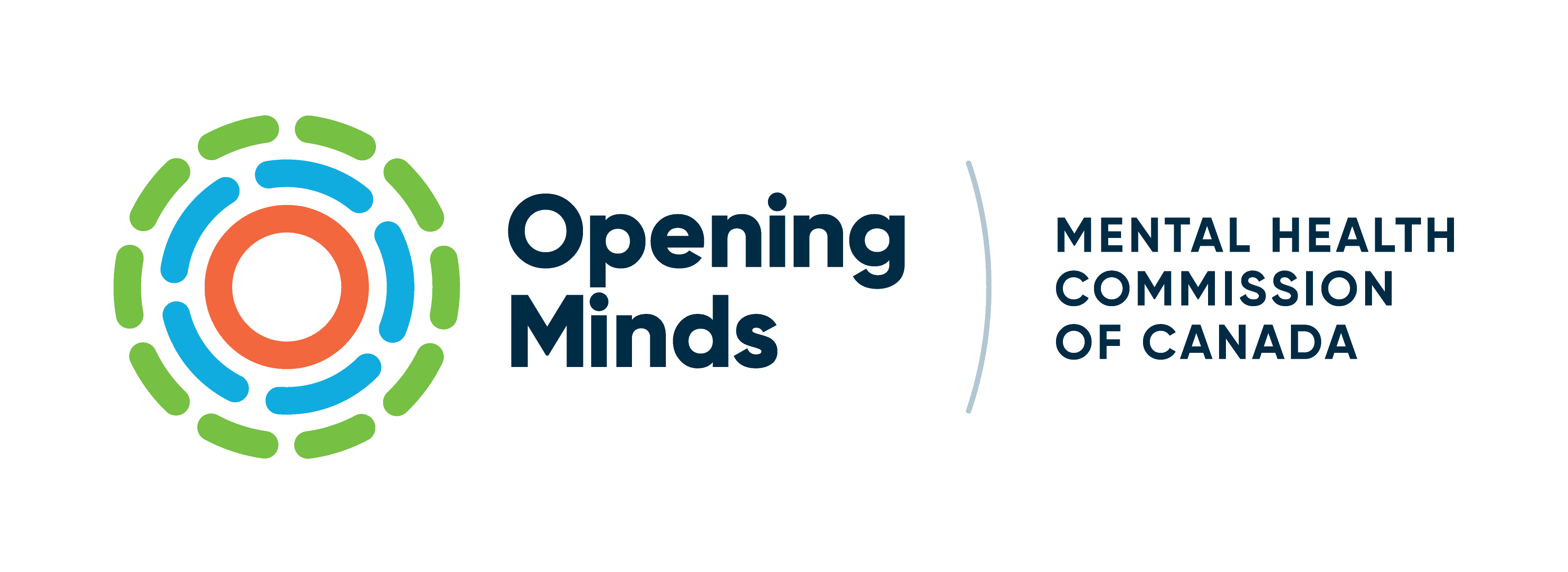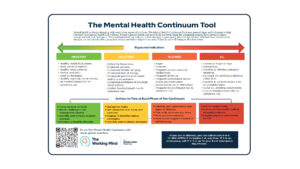Celebrating an amazing facilitator, a powerful voice for lived experience, and a human-first approach to learning.
If you’ve ever been in one of Paula Corcoran’s classes, you remember her. Not because she overwhelms a room—Paula doesn’t need to. You remember her because she shows up as herself. Honest. Open. Fully human. And in doing so, she gives you permission to do the same. Paula has been a facilitator with Opening Minds for over 12 years. She teaches Mental Health First Aid (MHFA) and The Working Mind (TWM), which helps train new facilitators, and is now preparing to lead sessions in Psychological Health and Safety (PHS)—a natural next step for someone who has turned pain into purpose. But to understand what makes Paula’s approach so impactful, you need to know why she’s here.
From Crisis to Clarity
Years ago, Paula was working in a psychologically unsafe workplace. The stress wasn’t just “part of the job”—it broke her. What followed was a seven-year stretch where she wasn’t able to work at all. That period became a journey of rebuilding, supported by mental health services and care that helped her come back—not just to work, but as the leader of a mental health organization.
That lived and living experience is the heartbeat of everything Paula does.
When she talks about what drew her to become part of the Opening Minds Facilitator Community, she uses one word that means everything: space.
“There weren’t a lot of spaces for people like me,” she says.
By “people like me,” Paula means people with lived or living experience of mental health problems. And by space, she means something layered:
A space to belong.
A space to be safe.
A space without judgment.
That’s not just philosophy. It’s practical.
“It’s rethinking what safety means. Yes, it’s emotional—feeling accepted, not judged. But it’s also tangible. Like, if I sprained my ankle—would someone know what to do? If I had a panic attack—would you know how to help? Would you have the courage to step in?”
She compares it to walking into a mall and knowing that, if she had a medical emergency, someone would step up. Mental Health First Aid, she says, provides that same kind of readiness—but for the mind.
“I’m not going to go somewhere I might be psychologically injured,” she says. “But when people are trained, it creates a space where I can be real, safe, seen.”
This is what Paula helps people understand: mental health support isn’t abstract.
It’s real. It’s practical.
And it changes lives.
Her Approach: Human and Memorable
If you’re lucky enough to learn from Paula, you’ll notice two things:
First, she’s real. Paula doesn’t “perform” mental health training. She lives it. Her teaching is infused with humility, humour, and heart. She meets people exactly where they are—whether they’re just starting to explore mental health, or deep into their journey.
Second, she delivers practical insights that stick. Paula is a master of turning deep concepts into simple, everyday tools:
- “Replace judgment with curiosity.”
- “Assist, don’t fix.”
- “Help create the support plan. You don’t have to be the plan.”
These are more than catchphrases. They’re mindsets that can transform how we show up for the people around us—in our workplaces, in our homes, and in ourselves.
The Ripple Effect
Over a decade in, Paula still sees transformations in nearly every class. But two stories stick with her.
The first was a participant who came to MHFA with deep grief and unresolved anger after a friend died by suicide. Through the training—especially the role-play scenarios—something shifted. The participant began to understand their friend’s experience in a new way. What had been anger became compassion. And that compassion became motivation to create change.
Another trainee discovered that the tools learned for the workplace were just as powerful in personal life. The training opened up a new way of communicating—with family, loved ones, and even with oneself.
“This is a whole new way to communicate,” they shared.
“A whole new way to relate. To connect.
Honestly—it saved my marriage.”
Why Paula Matters
At Opening Minds, we talk a lot about impact—about how our programs reduce stigma, build resilience, and create safer, healthier workplaces. Paula is what that looks like in real life.
She’s one of many powerful voices in our Facilitator Community—a network of trainers across the country who bring our programs to life with empathy, experience, and insight. But Paula’s story reminds us why this work matters.
Because this isn’t just training.
It’s creating space—for safety, for honesty, for change.
And thanks to facilitators like Paula, more and more people are stepping into those spaces with confidence.


